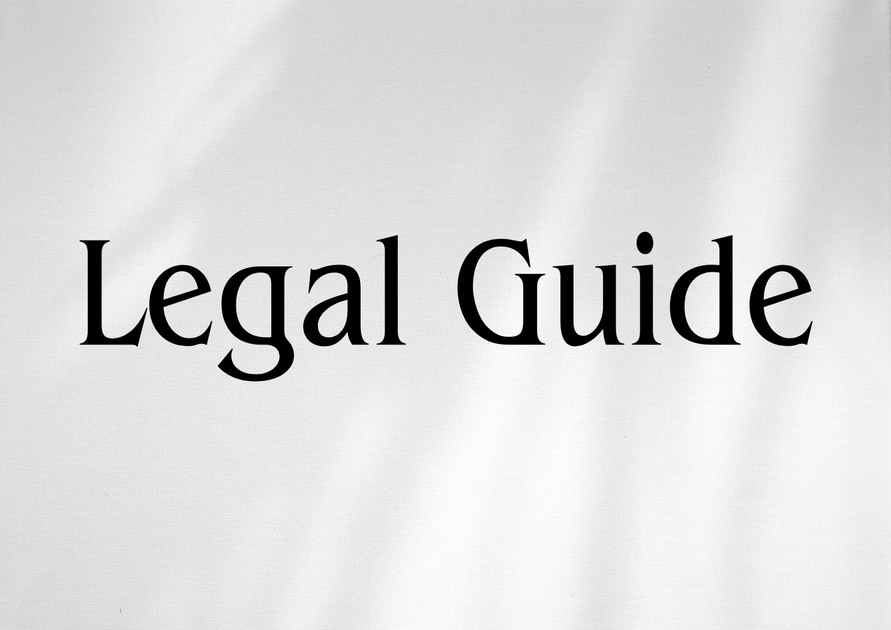Introduction: Shaping Business Integrity in the GCC through Legal Compliance
As global focus intensifies on transparency, governance, and ethical conduct, Saudi Arabia’s robust anti-corruption and business ethics framework has become a cornerstone of both domestic and cross-border commerce. For businesses operating in the GCC—especially those headquartered or incorporated in the UAE—understanding, adapting to, and anticipating Saudi Arabia’s rapidly developing legal landscape is paramount.
This analysis explores the intricacies of Saudi Arabia’s anti-corruption and business ethics regulations. We will delineate the law’s scope, interpret recent reforms, and provide expert guidance to mitigate compliance risks. Drawing on official directives and international best practice, this article is designed for executives, compliance officers, HR leaders, and legal advisors seeking to proactively navigate this evolving legal terrain.
The urgency is underscored by Saudi Arabia’s Vision 2030 mandate, which prioritizes transparency and the integrity of economic activity. Enhanced cooperation between UAE and Saudi regulatory authorities means that compliance in one jurisdiction increasingly affects legal standing and reputational capital across both. Thus, a comprehensive understanding of Saudi Arabia’s anti-corruption regulations is essential for any UAE-based entity with cross-border operations or business links.
Table of Contents
- An Overview of Anti-Corruption and Business Ethics Legislation in Saudi Arabia
- Key Provisions and Regulatory Authorities
- Recent Legal Updates and Reforms: 2023-2025
- Comparative Analysis: UAE and Saudi Arabia Business Ethics Laws
- Real-World Application: Case Studies and Hypothetical Scenarios
- Risks of Non-Compliance and Liability Exposures
- Best Practice Compliance Strategies for UAE Businesses
- Conclusion: Compliance as Strategic Advantage
An Overview of Anti-Corruption and Business Ethics Legislation in Saudi Arabia
The Legal Underpinnings
Saudi Arabia’s approach to anti-corruption and business ethics is primarily governed by:
- The Combating Bribery Law (Royal Decree M/36 of 1412H, as amended in 2023)
- The Government Tenders and Procurement Law (GTPL, Royal Decree No. M/128 of 2019 and amendments)
- National Authority for Anti-Corruption (Nazaha) Oversight Regulations
- Anti-Money Laundering Law (Royal Decree No. M/20 of 1439H)
- Conflict of Interest Regulations and Ministerial Circulars
These regulations target both public and private sector corruption offences, including (but not limited to) bribery, embezzlement, abuse of power, money laundering, and conflicts of interest. In alignment with international treaties such as the United Nations Convention against Corruption (UNCAC), the laws are designed for harmonization across borders, including with the UAE’s federal legal framework.
Scope and Applicability
The laws apply to:
- All commercial entities operating or conducting transactions in Saudi Arabia—including foreign and UAE-based companies with a local presence or counterparties.
- Government officials, private company employees, legal representatives, agents, and consultants.
- Violations committed outside the Kingdom, if the perpetrator is a Saudi national or a company registered in Saudi Arabia.
Key Provisions and Regulatory Authorities
Substantive Offences
Anti-corruption statutes in Saudi Arabia criminalise a sweeping array of conduct:
- Bribery: Offering, promising, giving, soliciting, or accepting any undue advantage, whether directly or indirectly.
- Embezzlement and Misappropriation: The use of public or entrusted resources for personal gain or unauthorized purposes.
- Abuse of Position: Using one’s office or influence to gain illegal advantages for oneself or others.
- Facilitation Payments: Treated as illegal under recent initiatives, broadening the liability for businesses and individuals.
- Failure to Report Corruption: Duty to report suspected offences or face penalties.
Regulatory Authorities
- National Authority for Combating Corruption (Nazaha): Empowered to investigate, sanction, refer cases to prosecution, and enforce transparency mandates.
- Public Prosecution Office: Prosecutes criminal cases, including for corporate entities and their executives.
- Saudi Arabian Monetary Authority (SAMA): Supervises financial sector compliance, anti-money laundering, and reporting obligations.
Corollary Regulations
Complementing the core anti-corruption statutes, Saudi Arabia has introduced mandatory code of ethics policies for listed and regulated entities, reporting requirements for suspicious transactions, and periodic internal audit obligations for all companies with significant government dealings.
Recent Legal Updates and Reforms: 2023-2025
Key Amendments and Trends
Driven by Vision 2030 and international standards, Saudi Arabia has enacted several critical reforms:
- Expanded Definition of Public Officials: The 2023 amendments widened the definition beyond traditional government employees to include executives, directors, and employees of private firms contracted by the government.
- Corporate Criminal Liability: New provisions render companies liable for corrupt acts of their employees—unless the entity demonstrates robust preventive compliance efforts.
- Protection of Whistleblowers: Revamped rules grant greater protection and incentives for whistleblowers, paralleling UAE best practices.
- Increased Penalties: Sanctions for both individuals and corporations have intensified, including substantial fines, asset forfeiture, and criminal liability for directors and managers.
- Mandatory Compliance Programs: As of early 2024, all companies bidding for government contracts must have a documented anti-corruption compliance program, with periodic review and reporting obligations.
| Offence | Pre-2023 Sanction | 2023/2024 Update |
|---|---|---|
| Individual Bribery | Up to 10 years prison, SAR 1m fine | Up to 15 years prison, SAR 2m+ fine, asset seizure |
| Corporate Bribery | Largely individual-focused sanctions | Liability extends to entity, managers, SAR 10m+ penalties, contract debarment |
| Whistleblower Retaliation | Administrative sanctions | Criminal liability, enhanced damages |
Comparative Analysis: UAE and Saudi Arabia Business Ethics Laws
Given the close economic integration of the UAE and Saudi Arabia, entities must be sensitive to overlapping and divergent legal requirements. The following table offers a high-level comparative analysis:
| Criteria | UAE (Federal Decree-Law No. 31 of 2021, latest update 2024) | Saudi Arabia (as of 2024) |
|---|---|---|
| Definition of Public Officials | Narrower (primarily state employees) | Broader (includes government contractors, corporate officers) |
| Corporate Liability | Recognized, often dependent on management involvement | Strict vicarious liability for failing to prevent offences |
| Whistleblower Protection | Emerging, under Cabinet resolutions | Formally codified, with incentives and protection |
| Obligation to Implement Compliance Programs | Recommended, sector-specific | Mandatory for all government contractors, large corporates |
| Penalties | Imprisonment, fines, administrative deprivation | Imprisonment, fines, asset forfeiture, debarment |
This divergence carries practical consequences, especially for businesses operating in both jurisdictions. Policies and controls that suffice under UAE law may not meet Saudi thresholds, exposing entities to regulatory risk, reputational harm, or exclusion from key markets.
Real-World Application: Case Studies and Hypothetical Scenarios
Case Study 1: UAE Firm Seeking Saudi Government Contracts
Scenario: A UAE-headquartered engineering consultancy forms a Saudi branch to bid for infrastructure tenders. An employee proposes a hospitality expense for a Saudi official beyond company norms.
Analysis: Under Saudi law, such an action could be interpreted as an illegal advantage. Even well-intentioned gestures—if not properly documented and pre-approved—could trigger investigations. The company must:
- Train all staff in Saudi anti-corruption expectations.
- Institute advance approval protocols for expenses involving government personnel.
- Maintain an auditable trail of any hospitality, gifts, or sponsorships.
Case Study 2: Cross-Border Internal Audit Reveals Facilitation Payments
Scenario: An internal audit at a UAE-based company with a Saudi joint venture uncovers small “grease payments” made by local managers to expedite business permits.
Analysis: Facilitation payments are strictly unlawful under Saudi statutes. Liability may extend to the parent company, senior management, and board members. Urgent corrective action must include:
- Self-reporting the matter to Nazaha (potentially mitigating penalty).
- Enhanced compliance training and revised controls.
- Disciplinary action or termination for responsible staff.
Suggested Visual: Compliance Incident Response Flowchart
(A process diagram illustrating steps from internal detection to self-reporting, investigation, and remediation.)
Risks of Non-Compliance and Liability Exposures
Non-compliance can produce severe statutory, financial, and reputational consequences:
- Criminal Prosecution for individuals and companies, including imprisonment and corporate dissolution.
- Contractual Debarment—permanent exclusion from government tenders.
- Forfeiture of Assets suspected of being connected to corrupt acts.
- Reputational Harm—damaged business relationships regionally and with international partners.
- Regulatory Enforcement—multi-jurisdictional investigations, especially where UAE regulatory bodies (such as the Central Bank or Ministry of Justice) coordinate with Nazaha or SAMA.
Risk Exposure Table
| Role | Type of Exposure | Mitigation Strategy |
|---|---|---|
| Directors | Criminal, civil, debarment, asset seizure | Board-level compliance oversight and audit |
| Managers | Personal liability for supervision failures | Training and reporting systems |
| Employees | Disciplinary and criminal | Clear policies and ethical awareness programs |
| Entity as a Whole | Civil, administrative, criminal | Comprehensive program implementation |
Early self-reporting and cooperation with authorities can often mitigate the severity of sanctions.
Best Practice Compliance Strategies for UAE Businesses
Core Pillars of an Effective Program
For UAE entities seeking to avoid liability while operating in or with Saudi Arabia, the following strategies are essential:
- Conduct Risk Assessments: Regularly evaluate susceptibility to corruption risks in joint ventures, subsidiaries, and representative offices in Saudi Arabia.
- Comprehensive Policy Frameworks: Establish, document, and communicate anti-bribery, conflicts of interest, and whistleblower policies aligned with Saudi and UAE laws.
- Tailored Training: Develop scenario-based training for employees and agents exposed to higher risk categories (e.g., government-facing sales, local sponsorships).
- Internal Controls and Record-Keeping: Institute controls around approvals, expenditure, procurement, and third-party due diligence. Maintain auditable records for at least five years.
- Investigations Protocols: Develop confidential reporting channels, rapid investigation teams, and escalation frameworks for suspected violations.
- Periodic Compliance Audits: Engage independent legal advisors for periodic testing of controls and effectiveness reviews.
- Documentation and Reporting: Ensure timely and correct filings and inquiries with both UAE and Saudi authorities as appropriate.
Visual Suggestion: Compliance Checklist Table
| Element | Status | Action Required |
|---|---|---|
| Employee Training Program | Ongoing | Annual refresher, scenario workshop |
| Third-Party Due Diligence | In-progress | Vetting & contract updates Q2 2024 |
| Whistleblower Hotline | Established | Awareness campaign |
| Internal Audit Plan | Partial coverage | Expand to all Saudi entities |
Role of UAE Legal Advisors
It is highly recommended that UAE-based businesses retain counsel with expertise in both UAE and Saudi legislation, particularly when contracts span both domains or when setting up local subsidiaries or JVs. Legal advisors can provide up-to-date notices on law changes, support investigations, and liaise proactively with regulators in both countries.
Conclusion: Compliance as Strategic Advantage
Saudi Arabia’s tightening anti-corruption and business ethics laws reflect a broader shift toward legal harmonization, economic openness, and investor assurance. For UAE businesses, compliance with these evolving standards is not merely a matter of regulatory defense—it is a strategy for unlocking cross-border opportunities, building credibility with partners, and protecting assets from unforeseen risk.
Forward-looking organizations will invest in policy review, continuous training, and proactive stakeholder engagement. By setting the highest bar for ethical conduct and regulatory awareness, UAE entities will not only meet but exceed the market’s expectations—strengthening both their competitive position and their corporate legacy in the region.
For tailored advisory on cross-border compliance, or to request a review of your current anti-corruption program in light of 2025 legislative updates, contact our UAE legal consultancy experts today.




